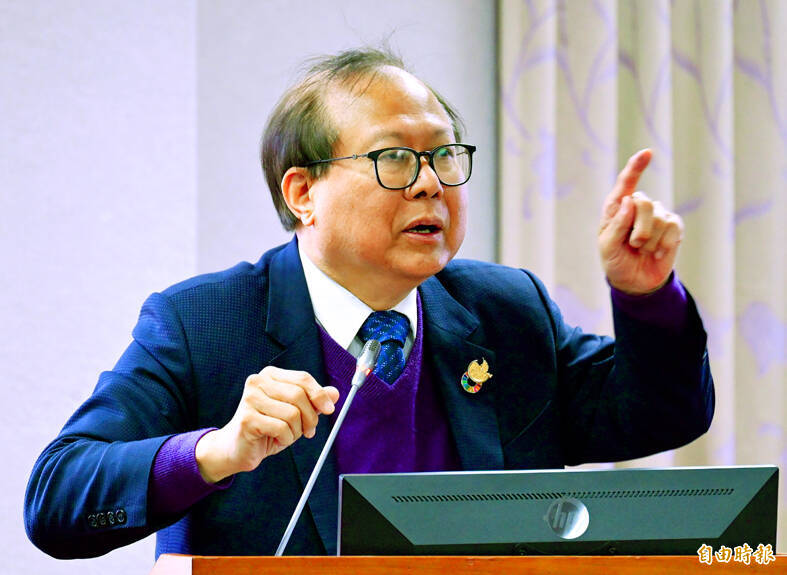《TAIPEI TIMES》 Officials propose mental health leave

Directorate-General of Personnel Administration Director-General Su Chun-jung speaks at a meeting of the Judiciary and Organic Laws and Statues Committee at the legislature in Taipei yesterday. Photo: Liu Hsin-de, Taipei Times
PUBLIC-SECTOR RULES: The three days would be part of guaranteed personal leave, would be paid leave and would not affect evaluations, Su Chun-jung said
By Hsieh Chun-lin, Rachel Lin and Jake Chung / Staff reporters, with staff writer
The government is considering allowing public servants three days per year of paid mental health leave, Directorate-General of Personnel Administration Director-General Su Chun-jung (蘇俊榮) said yesterday.
The agency on Monday forwarded the proposal to the Examination Yuan, which is to review it jointly with the Executive Yuan.
The measure is designed to improve the mental fortitude of public-sector workers, with mental health the focus of the Presidential Office’s Healthy Taiwan Promotion Committee, Su told a meeting of the Judiciary and Organic Laws and Statues Committee at the legislature in Taipei yesterday.
The three days would be part of the seven days of guaranteed personal leave, he said.
It would be paid leave, would not affect performance evaluations and would not require proof, Su said, adding that work units could not refuse requests for mental health leave, nor issue punitive measures of any sort over them.
Regarding holidays, Su said that he was not opposed to the issue of making Labor Day a national holiday, adding that his agency would comply with the Ministry of the Interior’s decision pending its review of May 1 becoming a state holiday.
Su said he had reservations over a proposal to reinstate seven national holidays removed by the government in 2016, as the move would affect the education of children in rural areas.
Separately, the Examination Yuan said that while wage hikes would mean that college graduates would start at NT$55,000 per month in public-sector jobs if they pass the civil service exams, the number of people sitting the exams had dropped to 4,994 in 2023 from 34,000 in 2012, an 86 percent decline.
The branch would initiate a four-year plan to attract talent to work for the government, Examination Yuan Secretary-General Jason Liu (劉建忻) said.
Measures include fostering interbranch collaboration, ameliorating regulations for national exams and personnel management, moving to a digital-based system, improving administrative staff training for better performance at the local and central government levels, and cultivating friendlier working environments, Liu said.
Minister of Examination Lio Mon-chi (劉孟奇) said that the ministry would amend regulations to create a more flexible exam system.
The government would update its archives of exam questions more frequently, propose strategies to attract more people to work in the public sector, and use artificial intelligence, big data and the cloud to create more innovative services, Lio said.
Additional reporting by CNA
新聞來源:TAIPEI TIMES

























